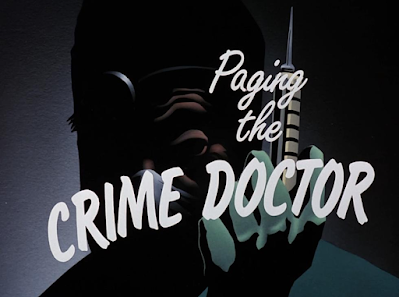I generally like Ryan Coogler's films. I think he has a solid visual sense and good recognition of both the space and limits of the story that he's trying to tell. On those that he's been directly involved in (Fruitvale Station, Black Panther) and indirectly (Homeroom, Jesus and the Black Messiah), I think he's a key part of the process in getting stories told that often wouldn't be otherwise. Among those is his latest, Sinners. As with Fruitvale and Black Panther, he's both writer and director on this one and his sense of style is visible all over it. It's just that when we get to some of the plot details that I feel like he could've done even more to take it in his own direction and somehow play those last few notes. (Mild spoilers below.)
That latter phrase is based on the fact that the film is largely about music and its influence, not only in African-American culture, but world culture. It takes place in one of the most vibrant and deeply-felt areas of that musical culture: the Mississippi delta. That's where Coogler, regular leading man Michael B. Jordan, and regular accompanying composer, Ludwig Göransson, build story and music together so that one never becomes separate from the other. The film itself isn't a musical, per se, but has several musical numbers that tell large portions of the story by themselves. It's a stylistic approach that worked spectacularly, without forcing us to watch another version of West Side Story. The music wasn't just the vehicle for the story. It was the story. Central to that embodiment was Miles Caton, who played Sammie Moore, aspiring guitarist and the son of a preacher man. Caton was the very embodiment of Delta blues and his powerful voice and playing (ably assisted by one of my long-time favorites, Delroy Lindo, on piano and harp) drove the story forward even more than Jordan's excellent rendition of twin brothers, Smoke (Elijah) and Stack (Elias.) Everything presented there would've made for a great story even without the supernatural elements that accompanied it.
And it's there where the river kinda dried up. Due credit to Coogler for including the local Choctaw presence, who show up in pursuit of a bad element. Unfortunately, that bad element turns out to be a bog standard vampire. That English descriptive that I'm fond of is even more appropriate in this place, as the vampire, Remmick (Jack O'Connell) is appropriately European (Irish) in his desire to dominate or destroy the non-White cultures that he encounters. Of course, given the history of the Irish in this country and back in Europe, Remmick's appeal to solidarity among the collected peoples when he tries to convince the twins and their friends to join the non-human set is yet one more valid metaphor in the story that Coogler's trying to tell. But it's also the same, tired vampire myth that we've seen before; involving garlic, wooden stakes, and sunlight. Smoke's (ex-)wife, Annie (the wonderful Wunmi Musaku) is a practitioner of traditional spiritualism and medicine down on the bayou and, between her knowledge and the presence of the Choctaw, it feels like we could've ventured into something a bit more exotic and less retreaded than the same Romanian refugees who happen to be walking around with a Gaelic accent. Why couldn't we have had people possessed by corrupted shilombish or something like that? Instead, we get typical bloodsuckers who try to trick people into inviting them in, but are powerless to do anything else until that point.
My complaint about Black Panther was that it was telling an interesting espionage and international diplomacy story until we got to the third act, where everything devolved to explosions and cyber-rhinos. I assumed at the time that that was just the necessary price of entering the Marvel Universe. But that's kinda how this story ends up, too; with a cascade of bullets, blood, and fire, even after the supernatural elements have departed the scene. We go from a deeply-invested story about the power of music suffusing culture deep into the past and far into the future and, at the end, the only music we get is the staccato of a tommy gun, which kind of wipes the mind of everything that's been told before. For the first two acts, I really thought we were going somewhere and then the third just left us at the door of typical Hollywood horror flick, like a slightly more cultured From Dusk 'til Dawn. I liked the script and the dialogue (Women talking frankly about sex! Just like, y'know, real life.) I liked most of the characters and performances. I highly appreciated the music, including the Irish jig that Remmick and Co. engage in (Rocky Road to Dublin.) But, in the end, I came out of the film thinking about all of the opportunities missed, rather than the spectacle that I'd just seen, which is really unfortunate. It's certainly worth the time to see it, but I can't point at it and suggest that it's a song that's going to stick with you.













